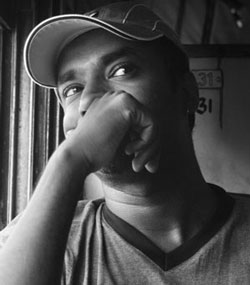Is evolution compatible with religion and free will?
What does a recent survey of evolutionary scientists teach us?

A recent survey published in the American Scientist1 polled evolutionist scientists regarding their views on the relationship between religion and their beliefs about free will. A 1998 poll had found that the number of scientists who believed in a personal God or immortality dropped from 37 percent in 1914 to 10 percent in 1998, and only 5 percent among biologists. See National Academy of Science is godless to the core Nature survey.
The overwhelming atheism of the US National Academy of Science is sad, considering that most of the first scientists were committed Christians who saw their work as completely consistent with their faith (see for example The biblical origins of science: A review of For The Glory of God: How Monotheism Led to Reformations, Science, Witch-hunts and the End of Slavery by Rodney Stark).
The American Scientist survey was the first survey to focus specifically on evolutionist scientists, all NAS scientists. Out of 149 respondents, only two were full theists, and two claimed to be more theistic than naturalistic. In all, only 4.7 percent of the respondents claimed any degree of theistic belief.
Evolution and theism
The evolutionists’ views on the relationship between science and theistic religion are surprising, considering their strongly anti-theistic personal views. Of course, evolution in itself is a religion and an explicit substitute for Christianity, as evolutionary philosopher Michael Ruse admitted.
Predictably, only 3 percent believed that evolution and religion were completely compatible and 8 percent chose the philosophically bankrupt non-overlapping magisteria principle advocated by the late Marxist Stephen Jay Gould. And a surprisingly low percentage said that evolution and religion are mutually exclusive, as evolutionists like Richard Dawkins and William Provine claim. Instead, a large majority of 72 percent took the view that religion is ‘a sociobiological function of human culture, a part of human evolution, not a contradiction to evolution’. Though they do not themselves believe in God, they are loath to completely dismiss it, perhaps because the vast majority of Americans still claim theistic faith. Darwin himself privately believed that Christianity was incompatible with evolution, as shown in the article Darwin’s arguments against God: How Darwin rejected the doctrines of Christianity. But he used the theistic evolutionary ideas of Asa Gray to ease the concerns of those who raised religious objections to evolution until the acceptance of his hypothesis meant that he no longer needed to defend a theistic view of evolution. The American Scientist article admits that treating religion as a sociobiological product of evolution, ‘while a plausible hypothesis, denies all worth to religious truths.’
While the theistic evolutionist normally takes a view that says that God directs evolution to some end, the sociobiological view says that religion evolved because it gave humans some sort of survival advantage. While religious people tend to have more children than atheists,2 one wonders how evolution could work in such a way as to benefit those who believe in something that is not true. And if religion is somehow programmed into our genes, how does one explain the likes of Dawkins and the respondents to the American Scientist survey, who have apparently ignored the theistic impulses of their genes?
More importantly, if evolution determines to any extent what we believe about reality, how can anyone know for sure that their perception of reality is accurate, when it could simply be the product of evolution, as C.S. Lewis pointed out? And, as the American Scientist article pointed out, if the sociobiological view of religion is accepted, it does not matter whether one is a Buddhist or Muslim or Christian, since all religions are reduced to fantasies which happen to be convenient for the reproduction of humankind.
Even a non-Christian social commentator, Dr Theodore Dalrymple, showed up the flaws in this evolutionary reasoning, as promoted by the atheist philosopher Daniel Dennett:
‘Dennett argues that religion is explicable in evolutionary terms—for example, by our inborn human propensity, at one time valuable for our survival on the African savannahs, to attribute animate agency to threatening events.
‘For Dennett, to prove the biological origin of belief in God is to show its irrationality, to break its spell. But of course it is a necessary part of the argument that all possible human beliefs, including belief in evolution, must be explicable in precisely the same way; or else why single out religion for this treatment? Either we test ideas according to arguments in their favor, independent of their origins, thus making the argument from evolution irrelevant, or all possible beliefs come under the same suspicion of being only evolutionary adaptations—and thus biologically contingent rather than true or false. We find ourselves facing a version of the paradox of the Cretan liar: all beliefs, including this one, are the products of evolution, and all beliefs that are products of evolution cannot be known to be true.’3
What about free will?

Only 14 percent of the respondents to the American Scientist survey believed that humans do not have free will, with 79 percent saying that humans have free will (7 percent did not answer, apparently exercising their own free will). The American Scientist article takes a slightly superior tone, saying, ‘Although eminent, our respondents had not thought much about free will beyond the students in introductory evolution classes,’ and advocates a view that divorces choice from free will: ‘what counts is whether the choice is free or determined, not whether human beings make choices.’ The article ends with the note: ‘Belief in free will adds nothing to the science of human behavior.’
If these atheistic evolutionists followed their own beliefs to their logical conclusion, it would result in the belief in complete determinism; there can be no free will4 if humans are simply guided by the chemical reactions that take place in their brains. As William Provine pointed out, in the consistent evolutionary view, ‘there is no ultimate foundation for ethics, no ultimate meaning to life, and no free will for humans, either.’5
However, the origin of consciousness is a big problem for evolution. Richard Gregory, evolutionist and professor of neuropsychology and director of the brain and perception laboratory at the University of Bristol in England, explained a major dilemma:6
‘If the brain was developed by Natural Selection, we might well suppose that consciousness has survival value. But for this it must, surely, have causal effects. But what effects could awareness, or consciousness, have?
‘Why, then, do we need consciousness? What does consciousness have that the neural signals (and physical brain activity) do not have? Here there is something of a paradox, for if the awareness of consciousness does not have any effect—if consciousness is not a causal agent—then it seems useless, and so should not have developed by evolutionary pressure. If, on the other hand, it is useful, it must be a causal agent: but then physiological description in terms of neural activity cannot be complete. Worse, we are on this alternative stuck with mentalistic explanations, which seem outside science.’
Conclusion
Though most of the surveyed scientists paid lip-service to the idea that religion and evolution are in some sense compatible, their personal atheistic beliefs show that in practice, evolution and religion do not mix. This should be a warning to those in the church thinking of compromising God’s Word with essentially anti-theistic theories.
References
- Survey available at http://www.americanscientist.org/issues/pub/evolution-religion-and-free-will. Return to text.
- See D’Souza, D., What’s so Great About Christianity, pp. 16–18, Regnery, US, 2007. Return to text.
- Dalrymple, T., What the new atheists don’t see: to regret religion is to regret Western civilization, City Journal, Autumn 2007. Return to text.
- Note that the statements here do not get into the contentious theological area of whether unredeemed humans are free not to sin, for example. Rather, it refers to behavioural choice in general. See also Sarfati, J., Refuting Compromise, pp. 197–8, 2004. Return to text.
- Provine, W.B., Origins Research 16(1):9, 1994. Return to text.
- Gregory, R., Consciousness, pp. 276–7, 1977. Return to text.

Readers’ comments
Comments are automatically closed 14 days after publication.